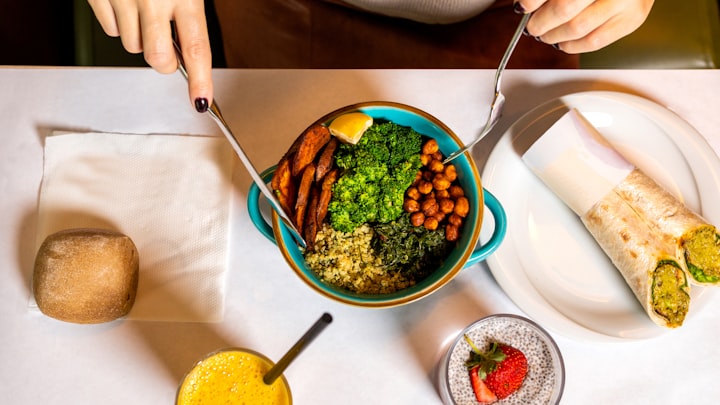Irreplaceable Vegetables and Meat
Nourishing the Body and Mind

Irreplaceable Vegetables and Meat
A healthy and balanced diet is essential for our overall well-being, and two key components of such a diet are vegetables and meat. These food groups provide us with a wide range of nutrients, flavors, and textures, making them irreplaceable in our daily meals. In this comprehensive article, we will delve deeper into the unique benefits of vegetables and meat, highlighting their importance in maintaining optimal health and vitality.
Vegetables, often referred to as nature's multivitamins, are packed with vitamins, minerals, and dietary fiber. They are low in calories and high in nutritional value, making them an excellent choice for promoting health and preventing chronic diseases. Leafy greens like spinach, kale, and Swiss chard are rich in vitamins A, C, and K, as well as minerals such as iron and calcium. These nutrients contribute to healthy bones, improved immunity, and enhanced vision. Root vegetables like carrots, sweet potatoes, and beets are loaded with beta-carotene, which the body converts into vitamin A. Beta-carotene acts as a powerful antioxidant, protecting our cells from damage caused by harmful free radicals. Cruciferous vegetables such as broccoli, cauliflower, and Brussels sprouts contain compounds called glucosinolates, which have been associated with a reduced risk of certain cancers. By incorporating a variety of vegetables into our diet, we can ensure we receive a wide range of nutrients that are vital for optimal health and well-being.
Meat, on the other hand, is an excellent source of high-quality protein, essential amino acids, vitamins, and minerals. Protein is crucial for various bodily functions, including muscle growth, tissue repair, and the production of enzymes and hormones. Lean cuts of meat, such as skinless chicken breast and turkey, provide us with a substantial amount of protein while being lower in saturated fats compared to fattier cuts. Red meat, such as beef and lamb, is a rich source of iron, which is necessary for the production of red blood cells and oxygen transport throughout the body. Fish, especially fatty fish like salmon, mackerel, and sardines, are packed with omega-3 fatty acids. These healthy fats have been associated with numerous health benefits, including reduced inflammation, improved heart health, and enhanced brain function. By including moderate portions of meat in our meals, we can meet our protein requirements and ensure the intake of essential nutrients that are vital for overall vitality.
While vegetarian and vegan diets have gained popularity, it is important to note that vegetables and meat offer unique nutritional benefits that may be challenging to replicate through plant-based alternatives alone. While plant-based proteins such as legumes, tofu, and tempeh are valuable sources of protein, they may not provide the same spectrum of essential amino acids and micronutrients found in meat. Additionally, certain nutrients like vitamin B12, predominantly found in animal products, are essential for nerve function and the production of red blood cells. Therefore, individuals following vegetarian or vegan diets should pay close attention to ensure adequate intake or consider appropriate supplementation.
Conclusion
vegetables and meat are indispensable components of a well-rounded and nourishing diet. By incorporating a variety of vegetables, we can supply our bodies with an abundance of essential vitamins, minerals, and antioxidants that contribute to overall health and disease prevention. Simultaneously, the inclusion of lean cuts of meat provides us with high-quality protein, important amino acids, and key nutrients necessary for optimal functioning. Whether we choose to embrace a vegetarian, omnivorous, or other dietary lifestyle, it is crucial to prioritize the inclusion of these irreplaceable food groups to maintain a balanced and nourishing diet that supports our physical and mental well-being.
About the Creator
David Ramadhevara
On my way






Comments
There are no comments for this story
Be the first to respond and start the conversation.